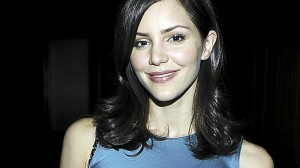Katharine McPhee attains TV stardom in ‘Smash’
Recently we watched the new musical-drama series “Smash” on the Diva Universal channel, and saw for ourselves why the show has gotten so much buzz in the States.
Developed from an idea originated by its executive producer, Steven Spielberg, the series sets its story in the highly competitive world of US musical theater, specifically Broadway, and shows what its resident denizens of “dreamers and schemers” are prepared to do or give up in order to get a new smash-hit musical on The Great White Way.
The big to-do is on the creation and staging of a musical on the life of the late, great and controversial Marilyn Monroe. The principal players include the two “finalists” in the search for the singer-dancer to play Marilyn, the show’s songwriters (Debra Messing and Christian Borle), producer (Angelica Huston) and director (Jack Davenport).
The first major bone of contention is: Who will play Marilyn? It’s a toss-up between a vastly experienced veteran (Megan Hilty) and a raw but gifted newcomer (Katharine McPhee). The first embodies the persona of Marilyn, the sex symbol; the newcomer calls to mind Norma Jeane, the real person before “Marilyn” became a star.
The early episode we caught was absorbing because it focused not just on the search for Marilyn, but also on the principal cast of characters’ respective back stories, not all of which are directly related to the world of entertainment.
Article continues after this advertisementFor instance, Messing’s character and her husband turn out to be in the tedious throes of trying to adopt a baby in China. Their frustration may be a private one, but it says a lot about them as people, not just as show biz denizens.
Article continues after this advertisementIn addition, it also provides a clarifying context to the way Messing’s character addresses and relates to her career in musical-theater entertainment.
The new series is a star-making showcase for McPhee, who’s come a long way since “American Idol” 2006. As the young hopeful from out of town, she has to sing well, and also act and dance with similar panache and brilliance—and she pulls off the tough assignment.
The other Marilyn hopeful is played by Hilty and she also gets her break in “Smash,” but the series’ attention is clearly canted in favor of McPhee.
In any case, even McPhee has to work extra hard, due to the presence of strong co-players like Messing and Huston. Thus, “Smash” is turning out to be a scintillating showcase not just for its new star, but also for its formidable veteran actresses, who come off much better than their male costars.
The guys don’t do badly; they’re just not in the firm focus of the series’ central thematic point, which takes its inspiration from its seminal Marilyn-Norma Jeane dichotomy: Yes, Marilyn did become a big star, but at what price? The cooption and disintegration of her true, Norma Jeane self, for one. Will this happen to McPhee’s character, as well? The plot coruscatingly thickens.
